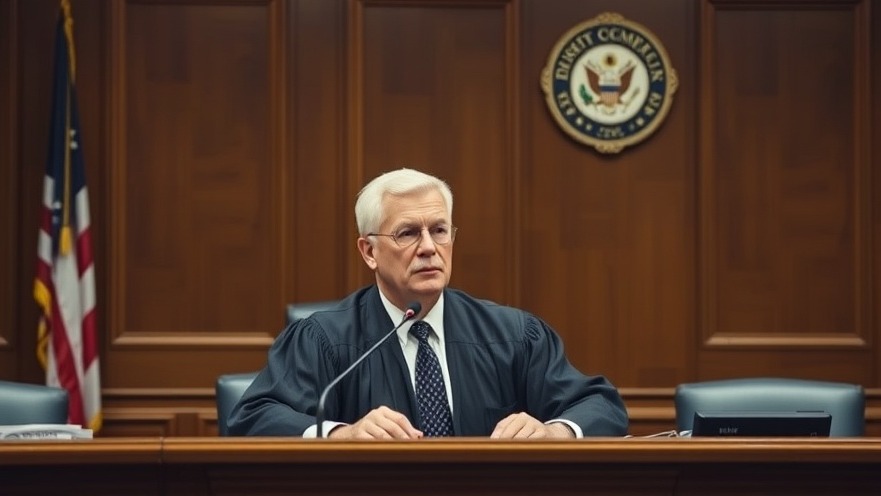
The Denial of a Request: A Review of the Harris County Case
The Harris County District Attorney's office faced a significant setback when their request to remove a judge from a high-profile domestic violence case was denied. This decision has drawn attention not only from legal experts but also from the community, as it raises critical questions about the judicial process and the implications of domestic violence cases in our society.
Understanding the Importance of Judicial Independence
The denial of the DA’s request to dismiss Judge Melissa Morris emphasizes the principle of judicial independence, a cornerstone of the legal system. Such independence ensures that judges can make decisions free from pressure or influence, which is especially crucial in sensitive cases like those involving domestic violence.
This principle protects the integrity of the judicial process, allowing for a fair assessment of the facts. However, it also raises concerns when the community perceives potential biases in judicial decision-making, which can lead to a demand for more accountability. Understanding this balance is essential for maintaining public trust in the legal system.
Domestic Violence: A Community Concern
Domestic violence remains a pressing issue across the United States, with numerous reports highlighting its prevalence. Victims often face not only physical harm but also emotional and psychological scars that linger long after the violence has ceased. In this context, the handling of domestic violence cases by the judicial system takes on heightened significance.
When specific judges are accused of bias or failure to adequately address the needs of victims, as seen in the recent Harris County situation, it can undermine the community’s confidence in the justice system. Victims may feel discouraged from coming forward, fearing they won’t receive a fair hearing. This speaks to the urgent need for ongoing education and training for judges on domestic violence issues, ensuring that they are adequately prepared to handle such cases.
Local vs. National Perspectives
While the Harris County case has local implications, it connects to broader national trends regarding the treatment of domestic violence cases. Across the country, advocates continue to fight for justice reforms that prioritize victim safety and accountability for offenders. Local jurisdictions often look to national models for best practices, underscoring the interconnectedness of these issues.
Navigating the complexities of legal processes in domestic violence cases reveals disparities in how justice is served across different states. Communities should engage in discussions around these matters to push for reforms that ensure fairness, support, and safety for victims in their areas.
Future Implications of the Court’s Decision
The court’s recent ruling on the request to remove Judge Morris could set a precedent for future cases in Harris County and beyond. It invites speculation about what changes may be needed to address public perceptions and criticisms regarding the handling of domestic violence cases.
As discussions unfold, advocacy groups may call for greater transparency in court proceedings and more avenues for victims to voice their concerns about judicial bias. Future legal frameworks might evolve to prioritize victim advocacy, potentially reshaping the landscape of domestic violence cases across the nation.
Empowering Victims Through Awareness and Advocacy
The importance of educating the public about domestic violence cannot be overstated. Awareness campaigns play a significant role in empowering victims and providing them with the resources they need to seek help. Local organizations often spearhead efforts to bring attention to domestic violence issues, offering support groups and legal assistance to those in need.
Individuals can contribute to this cause by volunteering with local organizations, attending educational workshops, and advocating for more robust support systems for victims. This collective effort is essential in fostering an environment where victims feel safe to come forward and seek justice, ultimately contributing to lower incidence rates of domestic violence.
Conclusion: A Collective Responsibility
The recent developments in Harris County surrounding the dismissal of the judge in a domestic violence case serve as a clarion call for our society. It highlights the need for vigilance, advocacy, and education surrounding domestic violence issues. As a community, we must strive to support victims, ensure that justice is served fairly, and advocate for necessary reforms in our judicial systems.
It's essential for those interested in national news to stay informed about these developments and engage with advocacy efforts in their communities. Only through collective awareness and action can we hope to effect change and create a safer environment for everyone.
 Add Element
Add Element  Add Row
Add Row 



Write A Comment